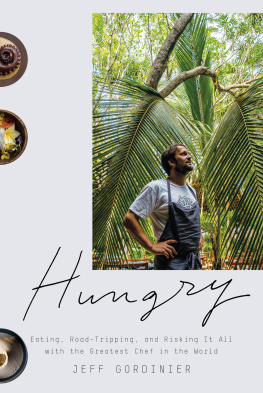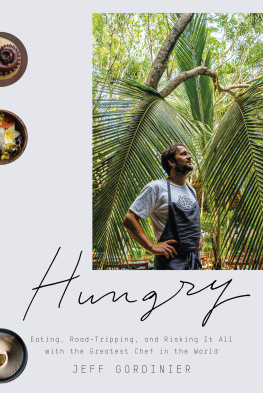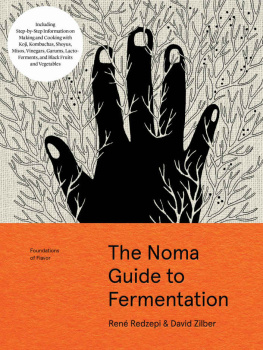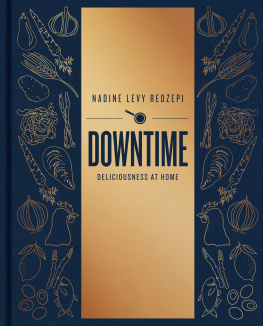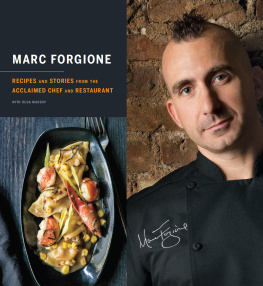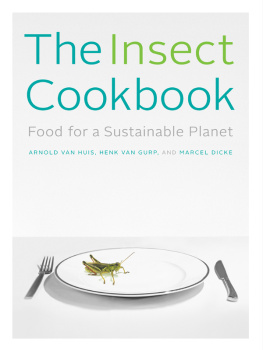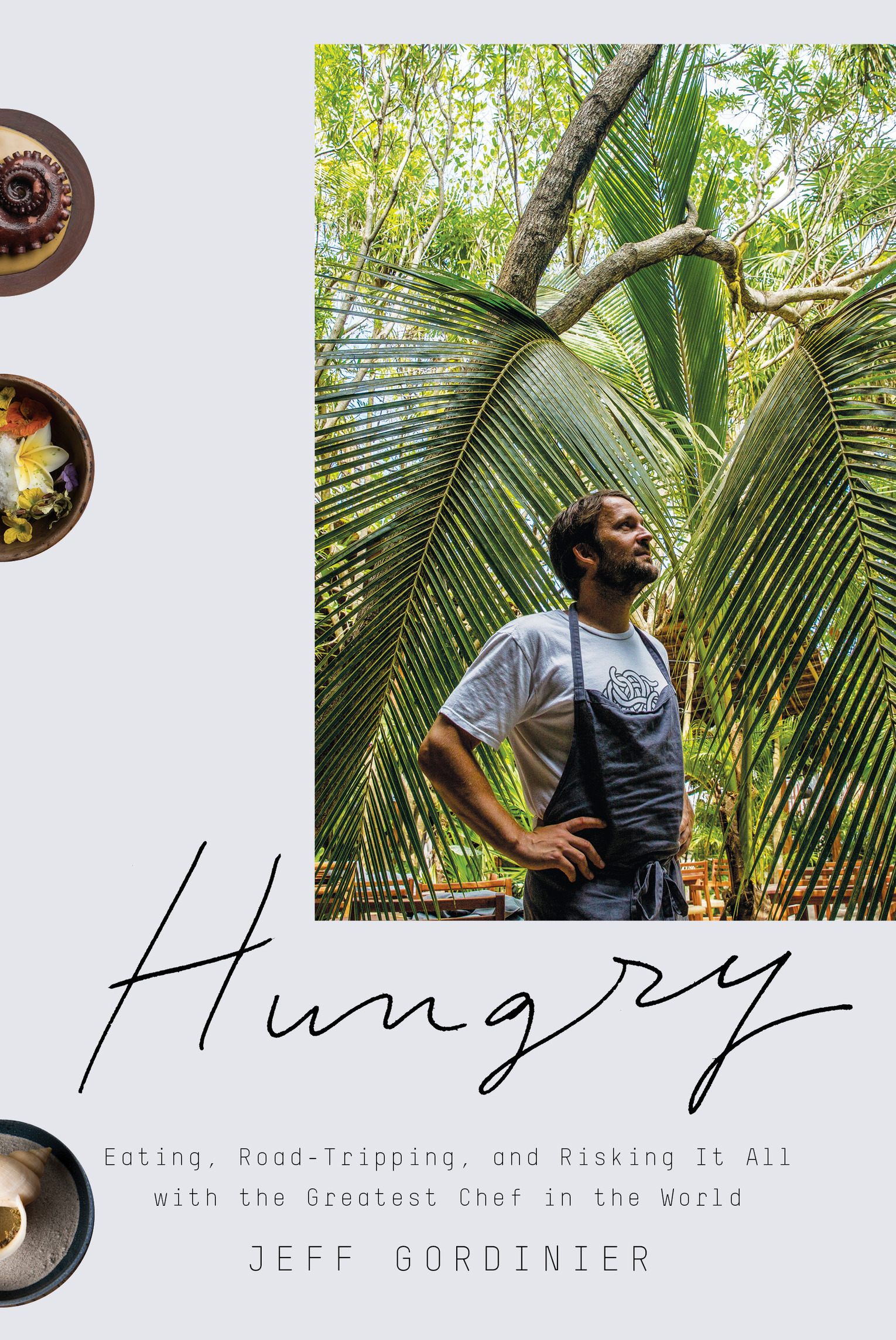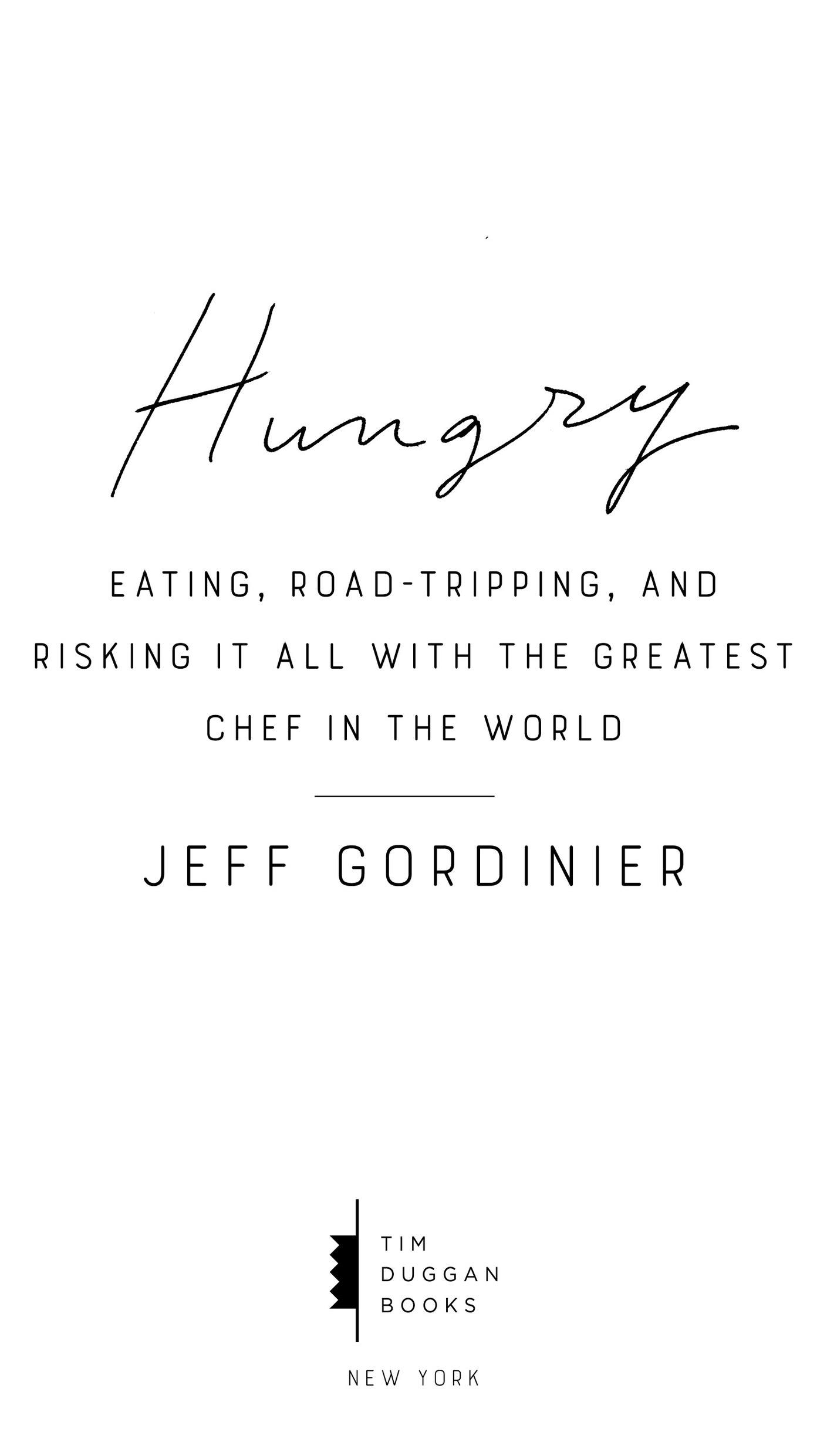Contents
Landmarks
Print Page List
Copyright 2019 by Jeff Gordinier
All rights reserved.
Published in the United States by Tim Duggan Books, an imprint of Random House, a division of Penguin Random House LLC, New York.
crownpublishing.com
TIM DUGGAN BOOKS and the Crown colophon are trademarks of Penguin Random House LLC.
Grateful acknowledgment is made to the following to reprint previously published material:
W. W. Norton & Company, Inc.: Moment from The Complete Poems of A. R. Ammons, Volume 1 19551977 by A. R. Ammons, edited by Robert M. West, copyright 1965 by A. R. Ammons. Reprinted by permission of W. W. Norton & Company, Inc.
Phaidon Press Limited: Excerpts from A Work in Progress: A Journal by Ren Redzepi, copyright 2019 by Phaidon Press Limited, which originates from A Work in Progress, copyright 2013. Reprinted by permission of Phaidon Press Limited.
Library of Congress Cataloging-in-Publication Data
Names: Gordinier, Jeff, author.
Title: Hungry: eating, road-tripping, and risking it all with the greatest chef in the world / Jeff Gordinier.
Description: First edition. | New York: Tim Duggan Books, 2019.
Identifiers: LCCN 2018054897 (print) | LCCN 2018056399 (ebook) | ISBN 9781524759667 (E-book) | ISBN 9781524759643 (hardback)
Subjects: LCSH: Redzepi, ReneFriends and associates. | CooksDenmarkBiography. | Gordinier, JeffFriends and associates. | Food writersUnited StatesBiography. | Gordinier, JeffTravel. | FoodMiscellanea. | International cookingMiscellanea. | BISAC: TRAVEL / Essays & Travelogues.
Classification: LCC TX649.A1 (ebook) | LCC TX649.A1 G67 2019 (print) | DDC 641.5092 [B]--dc23
LC record available at https://lccn.loc.gov/2018054897.
ISBN9781524759643
Ebook ISBN9781524759667
Book design by Lauren Dong, adapted for ebook
Cover design by Elena Giavaldi
Cover photographs: (Ren Redzepi) Adriana Zehbrauska; (dishes) Evan Sung
Photograph credits are on .
v5.4
ep
Contents
Nel mezzo del cammin di nostra vita
mi ritrovai per una selva oscura
ch la diritta via era smarrita.
D ANTE A LIGHIERI, canto 1, The Divine Comedy
Dreamer,
If you are like me,
you jump anyway.
J ASON R EYNOLDS, For Every One

I wake up with sand in my mouth and a glare in my eyes. A man is speaking Spanish and waving a flashlight. I try to remember where I am and the details wobble into place, like a wraith making its form more visible. I hear the lapping of waves. I grope around for my backpack and my shoes. I arise from slumber on a dark beach in Tulum, the Mexican resort town. That body of water a few yards away is the Caribbean.
I have been dropped here in the middle of the night at a languorous caravansary called Nueva Vida. Unable to locate my cabana, and unable to find anyone who could provide me with a key to the cabana, lost in the darkness and bereft of a phone signal and exhausted by a day that has involved a morning flight from Mexico City to Oaxaca, lunch in Oaxaca, the tour of a sprawling marketplace in Oaxaca, dinner in Oaxaca, significant quantities of mezcal, a flight from Oaxaca back to Mexico City, another flight from Mexico City to Cancn, and then a three-hour drive through the Yucatn Peninsula to this yoga-matted magnet for man-bun-and-matcha devotees, I have surrendered to fatigue and fashioned an al fresco bed for myself in the dunes. I am within spitting distance of a sanctuary where sea turtles clamber up on shore to lay their eggs.
The man with the flashlight turns out to be mercifulat least as soon as he realizes I am not there to interfere with the sea turtles and their ancient rituals. I pour the sand out of my shoes and grab my backpack and the man leads me to a stark white room with a sea breeze ghosting the curtains and a canopy of mosquito netting over the bed. Never has a bed looked more inviting. I climb in and try to sleep, but its only a matter of minutes before sunlight starts asserting itself through the doorframe. The only choice I have is to greet the day.
I have landed here in Tulum because of the stubborn coaxing of a man named Ren Redzepi. Within the close-knit world of global gastronomy, Redzepi is a figure whose influence might be compared to that of David Bowies in music in the 1970s, or Steve Jobss in technology in the 1980s, or Beyoncs now. He is the chef behind Noma, a restaurant in Copenhagen that hasfor those who follow and chronicle these thingschanged the way people think about food. Writers have a habit of referring to Noma as the best restaurant on earth. That may or may not make Redzepi, by hyperbolic extension, the greatest chef alive.
It is not every day that one is summoned to coffee by a cultural figure of that stature, but just such a twist of fate came to me one winter afternoon in 2014. I was working as a food writer on staff at The New York Times when an email arrived in my clogged in-box from Peter Tittiger, an operative at Phaidon, the publishing house that had put out Redzepis cookbook and journalbooks that were studied and parsed by chefs the way that songwriters and rock scholars had once geeked out on lyrics and liner notes. Redzepi wanted to meet me.
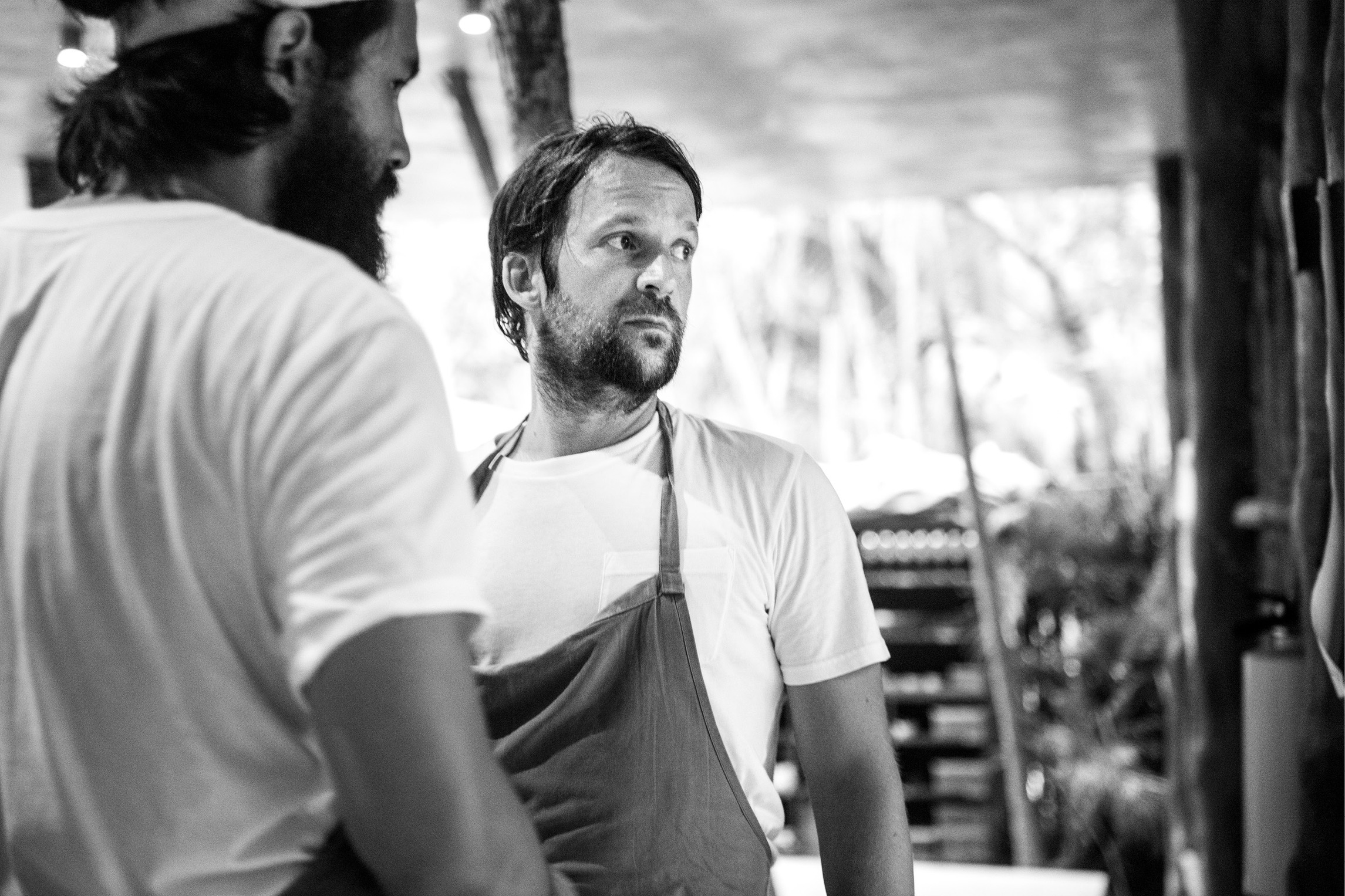
My inclination was to say no. I cant explain why a food writer from the Times would feel compelled to decline a face-to-face conversation with a man reputed to be the greatest chef alive, but the older I get, the more I find it liberating to say no. Most of the existing self-help literature seems to nudge us in that direction, doesnt it? Learn how to say no. But really I was just busy. There were multiple deadlines to juggle, there were staff meetings to endure, there were baseball games and piano recitals and family dinners to race home to. Some part of me thought, God help me, this Danish guy is going to hector me for two hours about the principles of the New Nordic movement. The New Nordic movement was the culinary juggernaut out of Scandinavia that claimed Redzepi as its chieftain. In 2004, Redzepi and his comrades, like agents of some French surrealist collective, had released a gastronomic manifesto, outlining the rules and aspirations that would govern their cooking in the years to come. Among its objectives were to express the purity, freshness, simplicity and ethics we wish to associate with our region, and to promote animal welfare and a sound production process in our seas, on our farmland and in the wild. In the early phase of his kitchen career, as the journalist Tienlon Ho has written:
Redzepi was expected to fall in line with his mentors and cook French classics, and for a while he did. Soon, though, Redzepi had the epiphany that his food should not only be made with but entirely shaped by what he found in the forest, on the beach, and in the hands of local farmers. In practice, this meant that berries ripe for a mere two weeks a year and plucked by a Swedish farmer uninterested in selling them were more luxurious than imported caviar; he served them in a bowl with minimal adornment. He made terroirthe soil, the climate, and the land that shape the flavor of the plant and the animal that eats itmore than jargon. He made it the entire point of his cuisine.

